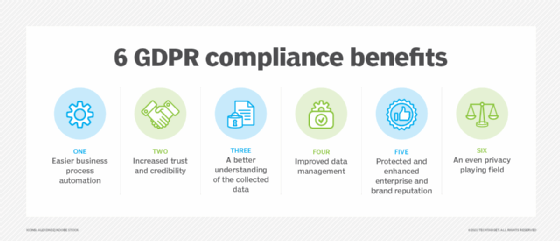
Getty Images
10 data storage questions for enterprises to ask
Does top management support your organization's storage needs? Is the storage platform compliant with regulations? These are just two of the data storage questions you need to ask.
Data storage is among the top five issues for IT leadership. As a result, it is important to ask the right data storage questions before making decisions about what your organization needs.
Without the availability of data needed by the business, most organizations could have difficulty surviving. To ensure focus on the most relevant issues, data storage questions should cover scalability, protection and AI. The 10 questions that follow are important for IT and the overall business.
1. Is senior management fully committed to data storage and its importance?
IT should regularly enforce senior management's understanding of the importance of data storage. This understanding is necessary to ensure senior management supports ongoing data storage programs. Management must also be open to new opportunities and strategies, as well as funding for those activities.
2. Are funding and budgeting sufficient to address storage now and in the future?
Funding for data storage is one of the key budgetary considerations for IT management. Funding needs to encompass not only current data storage operations, but also new strategies and directions storage can take, based on business requirements. Budget planning is linked to the overall data management program, which also addresses data security and data protection.
3. Is the data storage infrastructure current, and does it address longer-term requirements?
Data storage is not just about "now." Effective data storage management takes a longer-term view of potential data storage requirements. For example, if the organization acquires or merges with another firm, data storage planning needs to ramp up quickly to address changing requirements.
4. Is data stored in secure locations and protected from cyberthreats?
Storage security is based on guaranteeing the confidentiality, integrity and availability of the data. Encryption is one way to securely store data, ensuring its confidentiality and protecting its integrity. Multifactor authentication can enhance security of data access. When data moves from a user to a storage medium, the organization must protect the data in transit, which is where encryption is also important.
5. Is the data storage program compliant with storage and management standards and regulations?
Numerous standards, regulations and governance programs establish protocols for data storage. Some of these, like GDPR, have strict compliance requirements. Failure to comply could result in stiff fines. The ability to demonstrate compliance is important from an IT audit perspective. It is also important for customers who depend on secure availability of their data.

6. Can the organization quickly increase storage capacity?
Scalability is a key consideration for data storage teams. Organizations must be able to rapidly scale up capacity for planned and unplanned storage crunches. Cloud storage and its scalability can be a lifesaver in this instance. If cloud storage is not the primary storage vehicle, it may be worth considering as a tool for emergency requirements. If on-premises data storage is the primary strategy, managers have options, such as NAS.
7. Are existing cloud storage services sufficient, and do they provide value for money?
If the organization uses cloud storage resources, it should periodically evaluate ROI to ensure value.
8. Has the organization made environmental considerations for data storage?
Green data storage is an increasingly important consideration for IT managers. Strategies that help reduce a data center's carbon footprint include replacing legacy devices with energy-efficient units and replacing older power systems with modern energy-safe units. Cloud storage also addresses this problem as many cloud vendors have invested millions in green data centers.
9. Is the data storage sufficient for a disaster recovery situation?
Whether data storage is local or spread out among multiple data centers, ensure it is available for retrieval and use, regardless of the DR circumstances. Regularly test data storage for DR -- at least monthly -- to ensure the organization meets recovery time objectives and recovery point objectives.
10. Does AI make sense as part of storage strategies?
As interest in AI and machine learning increases, its applicability to data storage is timely. Perhaps AI could examine historical data storage statistics and trends from many organizations to develop longer-term storage strategies. Or it could examine usage data for different storage media to find the optimum mix of technology.





